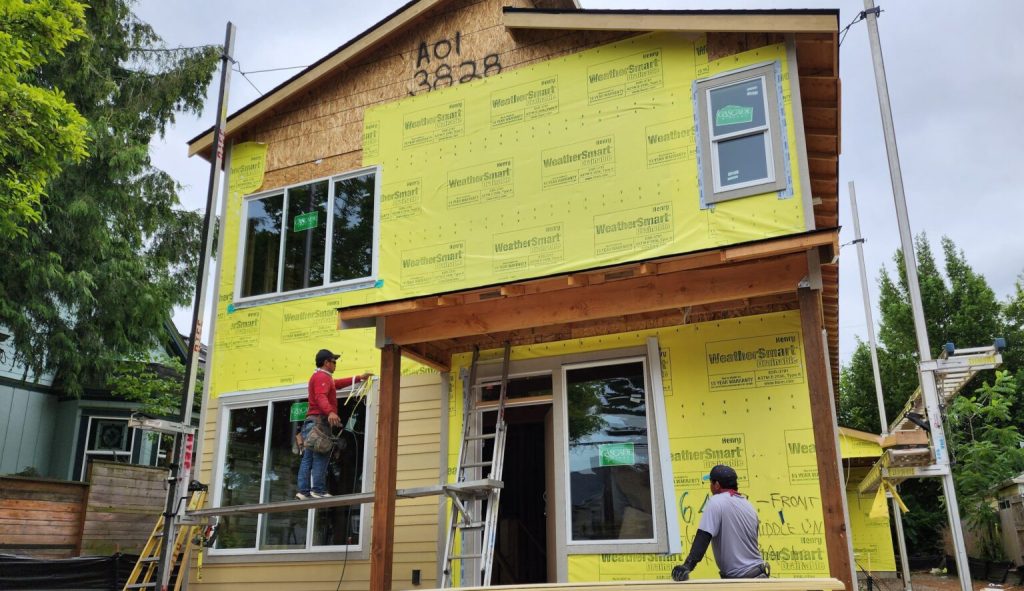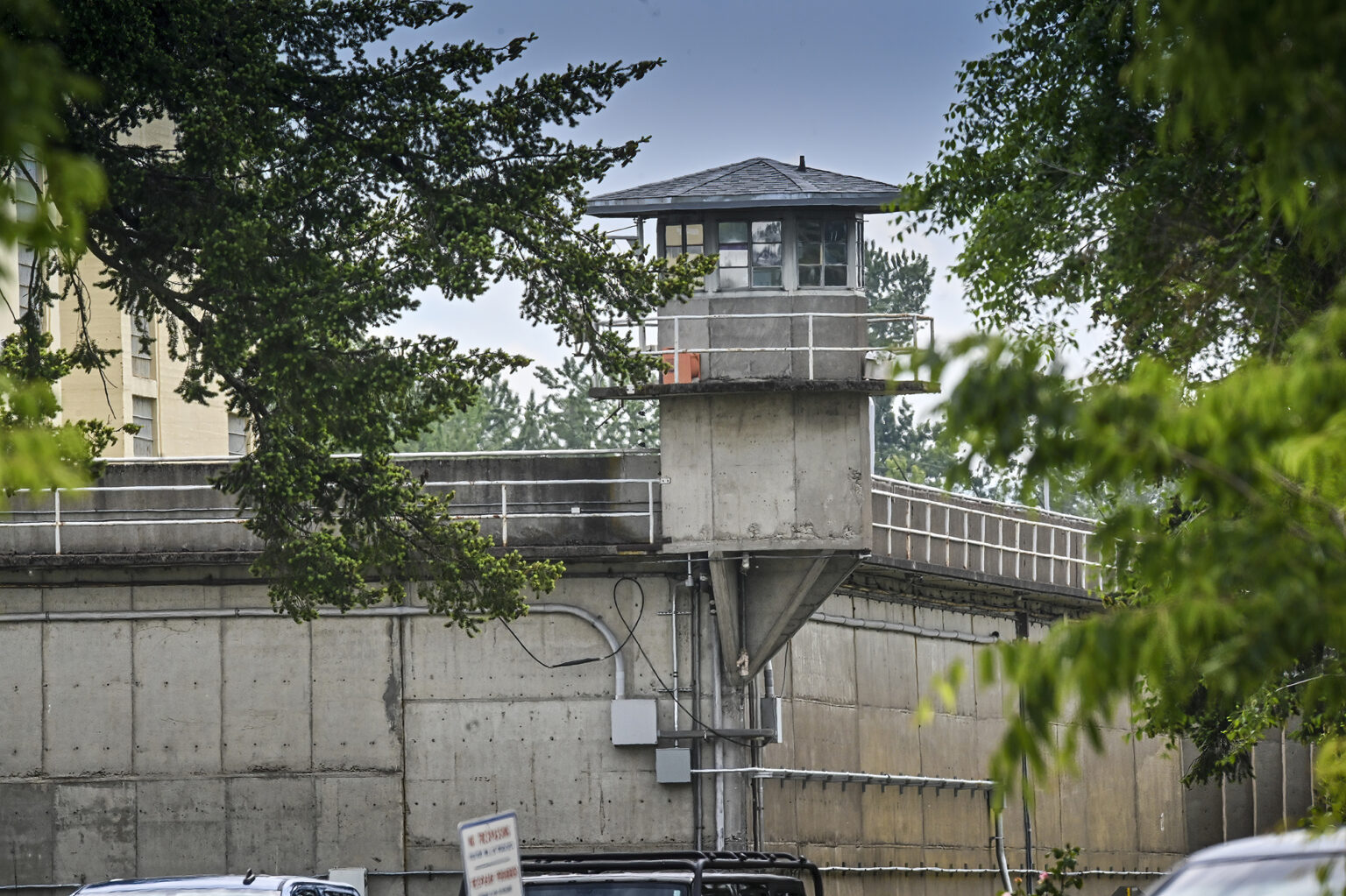Lawmakers passed slate of bills meant to address state’s ‘woefully short’ housing supply
Published 6:55 am Monday, July 7, 2025

- Construction is underway on a home in north Portland in July 2023. (Lynne Terry/Oregon Capital Chronicle)
The state Legislature passed at least a dozen bills meant to protect renter security deposits, boost housing production and ensure access to homeless shelters statewide
Oregon lawmakers passed at least a dozen bills meant to address the state’s housing crisis during the recently wrapped, six-month legislative session.
Rep. Pam Marsh, an Ashland Democrat and the chair of the House Committee on Housing and Homelessness said Democrats and Republicans share an understanding of Oregon’s housing issues, making it easier to pass policies that address them.
“We know the state is woefully short on housing,” she told the Capital Chronicle. “We know that affects the people who need that housing. It drives our homelessness numbers. It is tough for people who want to hire or bring people to the state when we don’t have enough housing. And it’s difficult for first-time homeowners.”
Marsh spearheaded many bills passed this session meant to boost housing production and help renters. The biggest disappointment, however, was not being able to put more money toward rent support and eviction prevention programs, she said.
Gov. Tina Kotek recommended in a December budget proposal that the Legislature allocate $173.2 million in the next biennium to maintain the state’s eviction prevention services and to prevent Oregonians from becoming homeless. But by the end of the legislative session, lawmakers instead slashed eviction prevention funding by 74%, the Oregonian reported, investing $34 million in eviction protection programs for the next two years.
“We didn’t get everything funded that we would like to fund, but the policy bills that we checked off are very strong for renters,” Marsh said.
The Oregon Capital Chronicle compiled a list of some of the bills that passed the Oregon Legislature during the 2025 legislative session impacting renters, developers, seniors and unhoused individuals. Many of the bills also encourage the development of less expensive housing types. Some bills already took effect and others are awaiting signature from Kotek, who has three weeks left to sign bills into law.
Helping Oregon renters, tracking home ownership rates
Limiting rent increases for manufactured home park residents
House Bill 3054 caps annual rent increases at 6%for people living in manufactured home parks and floating home marinas with more than 30 spaces. Kotek signed the bill into law, and it takes effect on Sept. 1.
There are about 140,000 manufactured housing units in Oregon, according to CASA of Oregon. While many people living in these units own their homes, two out of five manufactured homeowners pay rent for the land underneath them.
“This will make it possible for many more people to stay in their manufactured homes for a much longer period of time,” Marsh said.
Rent deposits back
House Bill 3521 will let Oregon renters who haven’t yet signed a lease get their deposits back if the home they’ve applied to live in has mold, unsafe electrical wiring or other defects. It was signed into law in June and takes effect on Jan. 1.
Homeownership goals
House Bill 2698 creates a state goal to reach a 65% homeownership rate by 2030 – followed by an additional 1.65% increase for every five years for 15 years. It mandates the Oregon Housing and Community Services Department create a dashboard tracking progress on homeownership rates across the state that include race and ethnicity data. The bill immediately took effect upon receiving Kotek’s signature on May 28.
Preventing homelessness in Oregon
Creating a statewide shelter program
House Bill 3644 requires the Oregon Housing and Community Services Department create a statewide shelter program. It tasks the department with appointing regional coordinators and distributing funding for services meant to reduce homelessness statewide and transition people into stable housing. The Legislature approved $204 million to fund the program for the 2025-27 biennium. The bill is awaiting signature from Kotek and would take effect upon passage.
“For the first time ever, we are putting into statute what the state shelter program framework should look like, and that framework identifies what kind of services are appropriate for state investment,” Marsh, the bill’s chief sponsor, said.
Investing in senior housing, accessibility support
House Bill 3589 requires the Oregon Housing and Community Services Department to use $23 million from senior property tax deferrals to develop, rehabilitate or preserve housing for older adults and people with disabilities. Kotek is expected to sign the bill into law.
People 65 and older make up about 20% of Oregon’s population, or about 4.3 million people, according to the U.S. Census Bureau.
The bill compliments House Bill 3506, also awaiting the governor’s signature, which puts $3 million starting in January to support seniors or people with disabilities who rent or own their homes but need to install a ramp, grab bars or other accessibility features in their homes. The bills passed nearly unanimously in both chambers.
Housing production bills
Oregon needs to build about 30,000 more homes each year, mostly in the Portland and Willamette Valley region, to meet the state’s housing demand, according to a January report from the Office of Economic Analysis at the Oregon Department of Administrative Services.
Kotek set a goal of getting 36,000 new homes built per year, but developers pulled only about 14,000 residential permits last year — slightly more than a third of the way to that goal — and most of those permits were for single-family homes. The following bills, many of which Kotek is expected to sign into law, aim to increase Oregon’s housing supply.
Condo liability reform
House Bill 3746 is meant to incentivize condo development by limiting the timeframe homeowners and condominium associations have to sue developers for construction defects from 10 to seven years.
Condos are usually more affordable than traditional single-family homes, but they are under-built in Oregon because it is easy to sue contractors for defects, making condos riskier to build and buy than a traditional home, according to the League of Oregon Cities.
Preventing bans on mobile homes in future developments
House Bill 3144, signed into law and taking effect Jan. 1, will prevent housing developments, subdivisions and “planned communities” from banning manufactured and modular homes when they otherwise allow residential housing.
Expanding middle housing in cities
House Bill 2138 allows for more middle housing, such as duplexes, triplexes and townhomes, in more places in cities and unincorporated lands. It prevents local governments from blocking middle housing on any land where a single-family home can be built.
“This bill says a structure can count as a duplex if it’s two homes on a lot without having to share a wall,” Regional sustainability think-tank Sightline Institute’s Housing and Cities Director Michael Anderson told the Capital Chronicle. “That’s still functionally the same housing type and the state is going to recognize it as such. It’s going to say that cities have to allow two homes on a lot to be either attached or detached, however people want.”
Supporting factory-produced housing
House Bill 3145 allows the Oregon Housing and Community Services Department to take $25 million for the biennium from the Local Innovation and Fast Track Housing Program Fund to support housing projects that use factory-based components for low-income households.
Speeding up housing development process
Senate Bill 974 speeds up the process of reviewing housing permits. It requires local governments to confirm completed applications within 30 days or request more materials and approve or deny permits for development within 120 days of completing the application.
Allowing state to preapprove housing plans
House Bill 2258 allows the state Land Conservation and Development Commission and Department of Consumer and Business Services to preapprove housing plans, easing the development process. It passed nearly unanimously in both chambers.
Establishing a Housing Infrastructure Financing Program
House Bill 3031 creates a program through the Oregon Infrastructure Finance Authority to provide financial assistance for infrastructure projects that support housing developments to local governments and tribes. The program will receive $10 million in lottery funds for the 2025-27 biennium.









